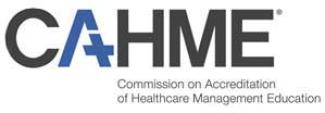Health Administration
Breadcrumb
Each of our programs below has its own set of mission, vision, and values. Please choose which program you are interested in to see the relevant information. You can also see our competency model and our outcomes for each program.
Vision
We will be widely recognized as one of the premier programs in healthcare management. Our alumni will be recognized as leaders in the healthcare industry. Our faculty will be recognized as major contributors to scholarship and advances in healthcare systems
Values
- Excellence
- Integrity
- Innovation
- Creativity
- Professionalism
- Diversity
- Service to students and the community
- Collaboration with the field of practice
- Advancement of the field through knowledge
Mission
The University of Colorado Denver Graduate Program in Health Administration improves the health systems in Colorado and beyond. We educate and empower graduates who with appropriate experience, can become leaders in healthcare management. Our business school setting helps us provide rigorous training in management concepts and techniques applicable to any organization. We synthesize this with analytic, decision making, and interpersonal tools specifically relevant to health service systems.
We educate both full-time and part-time students at all experience levels. Our program provides the same academic quality for all students, but in a format flexible enough to accommodate working professionals.
We create and disseminate knowledge relevant to the field. We impact the system directly through our partnerships with the business, government, and healthcare communities.
Competency Model
1: Relate Efficaciously
1a: Work effectively in teams and understand the importance and diversity of members in all group settings
1b: Manage working relationships including self-management and interactions with others.
2: Communicate Effectively
2a: Speaks and writes in a clear, logical, and grammatical manner in formal and informal situations
2b: Uses communication skills effectively to prepare cogent business presentations and facilitates group synergy
2c: Comprehends basic healthcare and medical terminology
3: Think Critically
3a: Demonstrates knowledge and use of basics business practices including
- Financial and managerial accounting practices, including preparation of budgets
- Economic analysis of firm performance and operating environments.
- Principles and processes of highly efficient and effective organization
3b: Analyzes, creates, and implements plans to improve the quality of patient care.
4: Lead Purposefully
4a: Collaborate effectively within diverse business teams, leveraging teamwork and leadership skills to make strategic decisions including
- Identifying marketing opportunities in a business situation and applies sound theory and principles to capitalize on the opportunity
- Developing and implementing a competitive business strategy, which includes considering the business, demographic, ethno-cultural, political, and regulatory implications of decisions
- Analyzing information technology alternatives to support healthcare initiatives
5: Evaluate components of the U.S. Healthcare System
5a: Explain the basic characteristics and functions of the U.S. healthcare system and how they compare with other healthcare systems around the world.
6: Behave Ethically
6a: Evaluate ethical dilemmas of healthcare management by applying appropriate theories and principles to the assessment of divergent perspectives in the decision-making process.
7: Advance Professionally
7a: Promote and manage their own career progression (identifies career paths, strengths, and skill gaps, and creates plans for self-development)
Progam Outcomes
| Applicant Breakdown | 2018 | 2019 | 2020 | 2021 | 2022 | 2023 | 2024 | 2025 |
|---|---|---|---|---|---|---|---|---|
| Applicants | 53 | 41 | 50 | 49 | 54 | 36 | 48 | 59 |
| Enrolled | 30 | 16 | 20 | 30 | 28 | 12 | 21 | 14 |
| Entering GPA (median) | 3.4 | 3.4 | 3.2 | 3.4 | 3.5 | 3.45 | 3.4 | 3.3 |
| GMAT overall score (median) | 600 | 600 | 570 | 570 | 570 | N/A | N/A | N/A |
| % Female | 60% | 25% | 50% | 43% | 44% | 50% | 48% | 74% |
| % Ethnic/Racial Minority | 20% | 50% | 20% | 30% | 40% | 58% | 48% | 58% |
The GMAT was dropped as a requirement for admission in 2023. We do recommend it for applicants with a GPA < 3.3.
| Rates | 2018 | 2019 | 2020 | 2021 | 2022 | 2023 | 2024 | 2025 |
|---|---|---|---|---|---|---|---|---|
| Completion Rate | 83% | 82% | 83% | 85% | 85% | 100% | 95% | 100% |
| Employment Rate (within 3 months of graduation) | 96% | 93% | 96% | 90% | 100% | 100% | 100% | 90% |
Vision
The University of Colorado Denver Network for Healthcare Management Executive Program in Health Administration will be recognized by major stakeholders as the leading executive program in health administration.
Values
- Excellence
- Quality
- Integrity
- Professionalism
- Diversity
- Collaboration
Mission
The University of Colorado Denver/Network for Healthcare Management Executive Program in Health Administration educates and empowers experienced professionals to become health industry leaders. The Program provides rigorous training in management concepts and techniques applicable to any organization. This training is synthesized with leadership competencies specifically relevant to health service systems. The Program and its faculty and staff are committed to collaboration among programs and to offering education in a format accessible to a diverse group of working professionals.
The faculty is expected to create and disseminate knowledge relevant to the field and to serve the community. Since the Program is a collaborative, it plays a secondary role in these areas to the home programs from which the faculty are drawn.
Competency Model
1. Boundary Spanning
Community Collaboration: The ability to align one’s own and the organization’s priorities with the needs and values of the community, including its cultural and ethnocentric values, and to move health forward in line with population-based wellness needs and national health agenda.
Relationship & Network Development: The ability to establish, build, and sustain professional contacts for the purpose of building networks of people with similar goals and that support similar interests.
2. Execution
Analytical Thinking: Developing a deeper understanding of a situation, issue, or problem by breaking it down or tracing its implications step-by-step. It includes organizing the parts of a situation, issue, or problem systematically; making systematic comparisons of different features or aspects; setting priorities on a rational basis; and identifying time sequences, causal relationships, or if-then relationships.
Communications Skills (1): Writing: The ability to use written communications in formal and informal situations to convey meaning, build shared understanding, and productively move agendas forward.
Communications Skills (2): Speaking and Facilitating: The ability to use spoken communications in formal and informal situations to convey meaning, build shared understanding, and productively move agendas forward.
Performance Measurement: The ability to understand and use statistical and financial metrics and methods to set goals and measure clinical as well as organizational performance; commits to and deploys evidence-based techniques.
3. Relations
Collaboration: The ability to work cooperatively and inclusively with other individuals and/or teams they do not formally lead; working together, as opposed to working separately or competitively.
Interpersonal Understanding: The ability to accurately hear and understand the unspoken or partly expressed thoughts, feelings, and concerns of others, especially those who may represent diverse backgrounds and very different worldviews. Levels of proficiency relate to the increasing complexity and depth of understanding, as well as openness to perspectives very different from one’s own.
4. Transformation
Strategic Orientation: The ability to consider the business, demographic, ethno-cultural, political, and regulatory implications of decisions and develop strategies that continually improve the long-term success and viability of the organization.
5. Values
Professional and Social Responsibility: The demonstration of ethics, sound professional practices, social accountability, and community stewardship. Acting in ways that are consistent with one’s values and what one says is important.
6. Health System Awareness & Business Literacy
Financial Skills: The ability to understand and explain financial and accounting information, prepare and manage budgets, and make sound long-term investment decisions.
Human Resources Management: The ability to implement staff development and other management practices that represent contemporary best practices, comply with legal and regulatory requirements, and optimize the performance of the workforce, including performance assessments, alternative compensation and benefit methods, and the alignment of human resource practices and processes to meet the strategic goals of the organization.
Information Technology Management: The ability to see the potential for administrative and clinical technologies to support process and performance improvement. Actively sponsors the continuous seeking of enhanced technological capabilities.
7. Self-Assessment & Self-Development
Self-Awareness: The ability to have an accurate view of one’s own strengths and development needs, including the impact that one has on others. A willingness to address development needs through reflective, self-directed learning, and by trying new approaches.
Program Outcomes
| 2018 | 2019 | 2020 | 2021 | 2022 | 2023 | 2024 | 2025 | |
|---|---|---|---|---|---|---|---|---|
| Applicants | 42 | 43 | 50 | 43 | 42 | 28 | 32 | 47 |
| Enrolled | 30 | 34 | 40 | 34 | 40 | 24 | 23 | 34 |
| Entering GPA (median) | 3.1 | 3.4 | 3.3 | 3.0 | 4.0 | 3.8 | 3.8 | 3.8 |
| % Female | 63% | 44% | 52% | 50% | 54% | 55% | 54% | 55% |
| % Ethnic/Racial Minority | 20% | 44% | 40% | 21% | 38% | 26% | 36% | 27% |
| 2018 | 2019 | 2020 | 2021 | 2022 | 2023 | 2024 | |
|---|---|---|---|---|---|---|---|
| Completion Rate | 100% | 100% | 100% | 100% | 100% | 100% | 100% |
| Employment Rate (within 3 months of graduation) | 100% | 100% | 100% | 100% | 100% | 100% | 100% |




